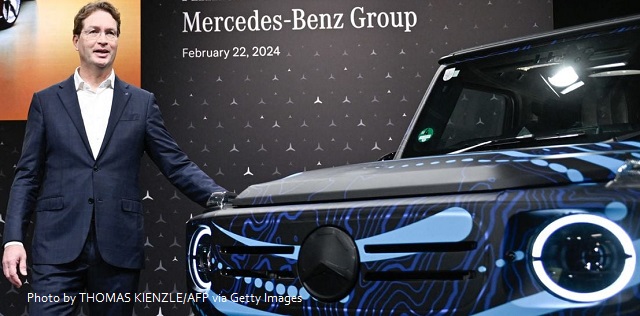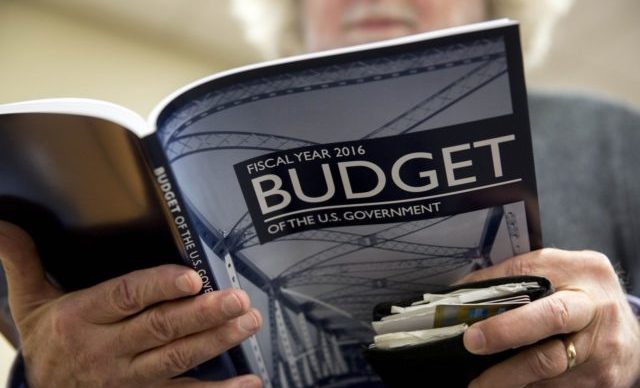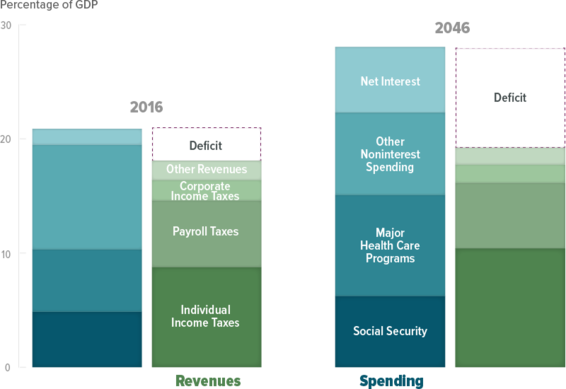Mercedes-Benz Walks Back On Huge Electric Vehicle Commitment Amid Slowing Demand

Mercedes-Benz on Thursday walked back plans to have an all-electric line-up by 2030 as consumers decline to adopt electric vehicles (EV) at the rate automakers expected.
The company has changed its expectations to have only 50% of its sales be EVs by 2030, announcing that it will be updating its current line-up featuring the internal combustion engine into the next decade, according to Mercedes-Benz in its fourth quarter report. EV sales grew 21% year-over-year in 2023, but total car sales remained relatively the same, bucking hopes that EVs would fuel growth as the automaker pushes electric models.
“It is almost like we will have a new lineup in 2027 that will take us well into the 2030s,” Ola Kaellenius, CEO of Mercedes, said following the report, according to Reuters. Kaellenius noted near the end of last year that even European markets, which are more likely to adopt EVs, might not be able to reach the 2030 all-electric goal due to consumer reservations about issues like lack of charging infrastructure and appealing models.
We just released our 2023 full year results.
For all details: https://t.co/K6Cne3C8GI#MercedesBenz pic.twitter.com/hM5NA9jW4U— Mercedes-Benz (@MercedesBenz) February 22, 2024
The Biden administration has sought to ease charging concerns as the president pushes for an EV transition, allocating $7.5 billion for charging infrastructure. Despite the huge investment, lack of demand, regulations and union requirements have stalled construction, with only two charging stations having been built as of December 2023.
Mercedes-Benz also posted its fourth quarter results, with revenue declining a disappointing 1.8% year-over-year but up slightly by 2.1% comparing 2023 to 2022, according to a release from the company. Net profit was down 21.5% in the quarter year-over-year and 1.9% for 2023.
The company also announced a 3 billion euro stock buyback in an effort to boost its stock price, according to the fourth quarter report.
Other automakers have also had to cut EV goals, including Ford, which announced that it would be reducing production volume of its F-150 lighting as of January after losing a total of $4.7 billion on EVs in 2023. General Motors reported a $1.7 billion loss in the fourth quarter in the production and sale of its EV line, despite being profitable otherwise.
“Our overall goal remain unchanged: Our Ambition 2039,” Mercedes-Benz said in a statement to the Daily Caller News Foundation. “Thereby, the ambition is to make our entire fleet of new vehicles net carbon-neutral along the entire value chain and over the vehicles’ entire life cycle by 2039. Therefore, we continue to put our company in a position to go all electric.”
AUTHOR
WILL KESSLER
Contributor.
RELATED ARTICLE: Upscale Rideshare Platform Abandons Commitment To All-Electric Fleet After Missing Mark
RELATED VIDEO: IN FOCUS: Consumers Reject Electric Transition with Tom Maoli – OAN
POST ON X:
Joe Biden's EV Mandate "Vision" For America Is In Full Collapse https://t.co/qFfBmZ4JRO
— zerohedge (@zerohedge) February 23, 2024
EDITORS NOTE: This Daily Caller column is republished with permission. ©All rights reserved.
All content created by the Daily Caller News Foundation, an independent and nonpartisan newswire service, is available without charge to any legitimate news publisher that can provide a large audience. All republished articles must include our logo, our reporter’s byline and their DCNF affiliation. For any questions about our guidelines or partnering with us, please contact licensing@dailycallernewsfoundation.org.


